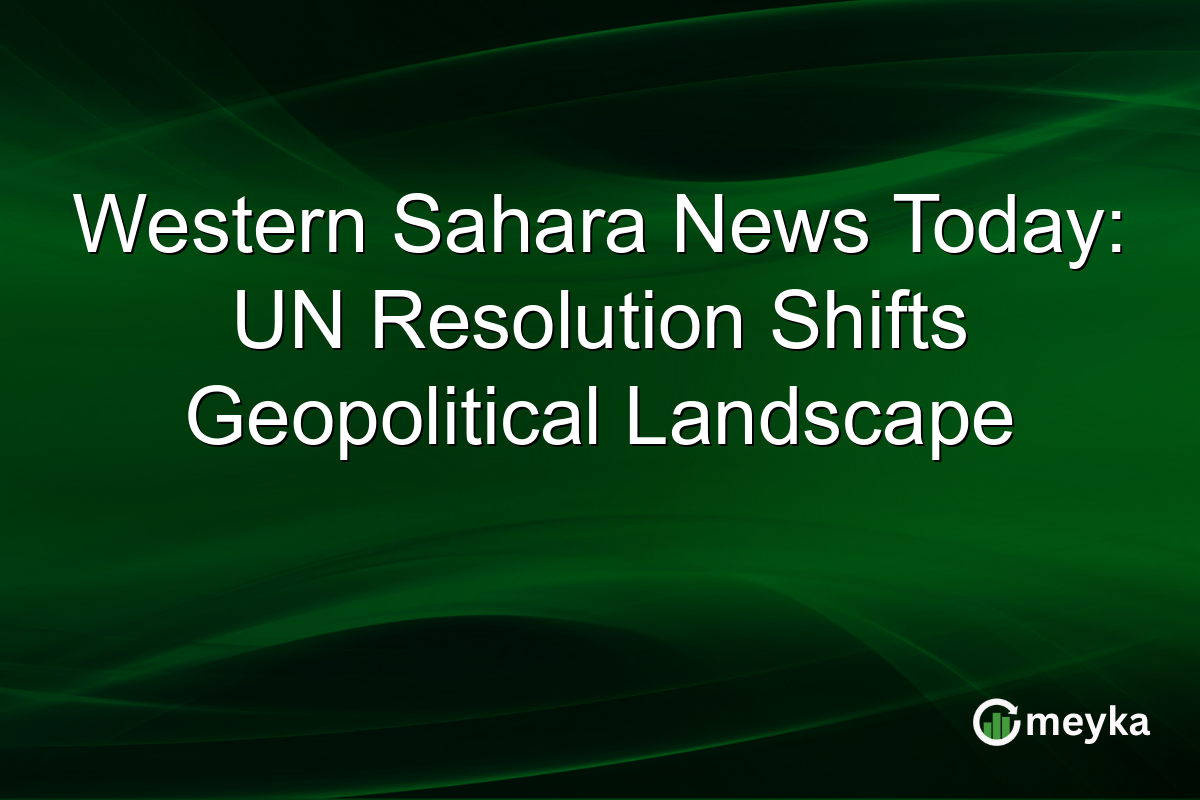Western Sahara News Today: UN Resolution Shifts Geopolitical Landscape
The recent UN Security Council resolution endorsing Morocco’s sovereignty plan for Western Sahara marks a noteworthy geopolitical shift. By backing Morocco, the resolution paves the way for altering international relations in the region. Historically, the Western Sahara conflict has been a contentious issue between Morocco and the Algerian-backed Polisario Front. This endorsement may set a precedent, influencing future diplomatic considerations and regional stability, aligning more global support towards Morocco.
Continue Reading on Meyka
This article is available in full on our main platform. Get access to complete analysis, stock insights, and more.
Read Full Article →





